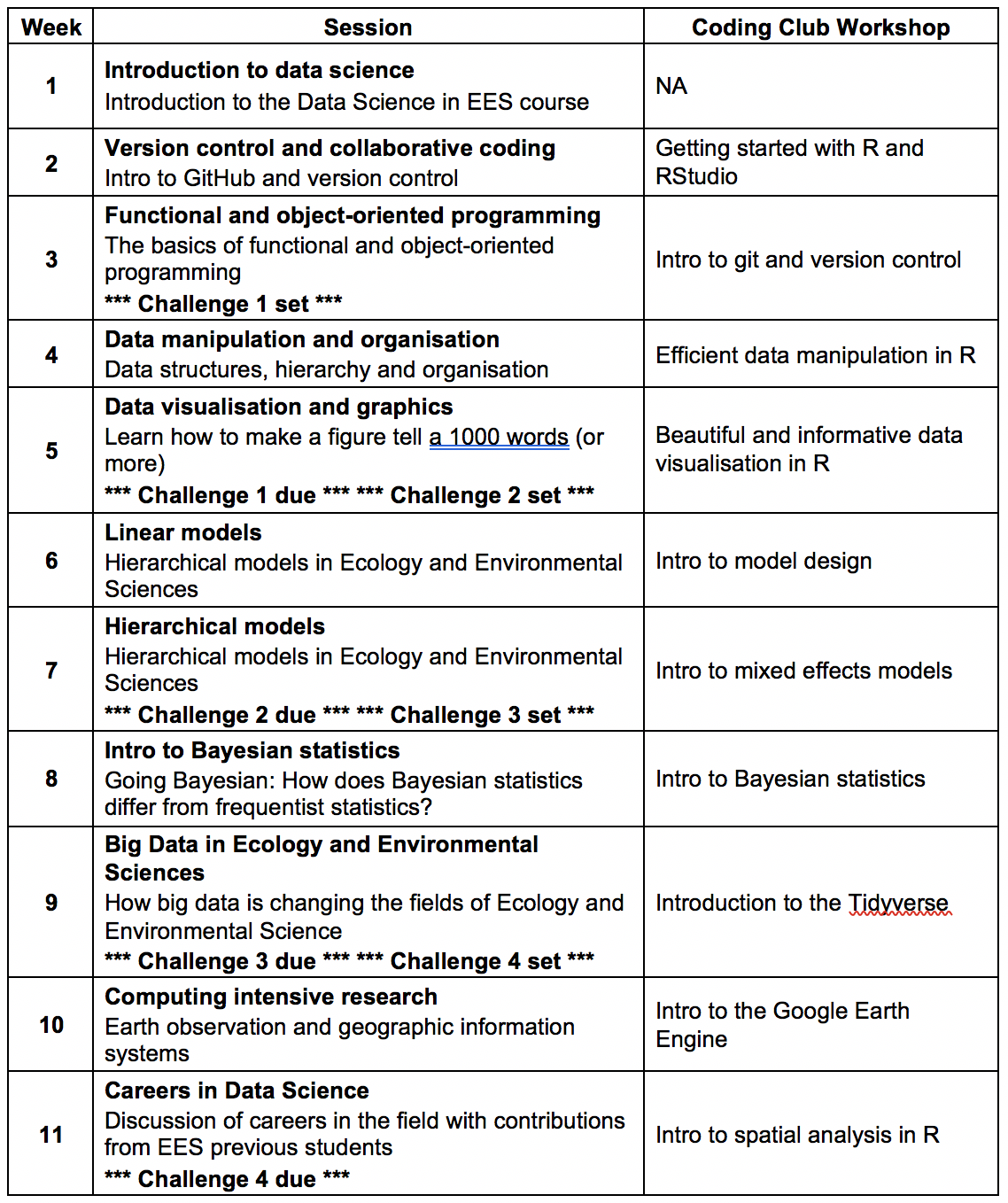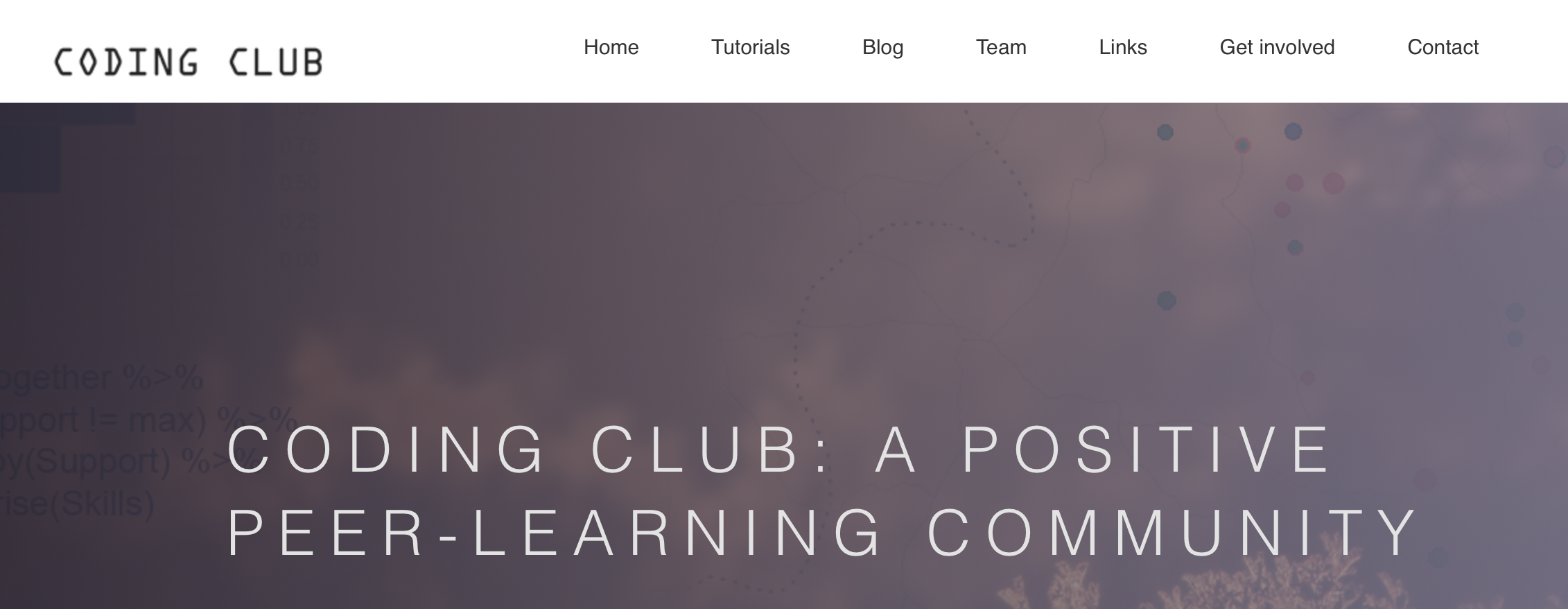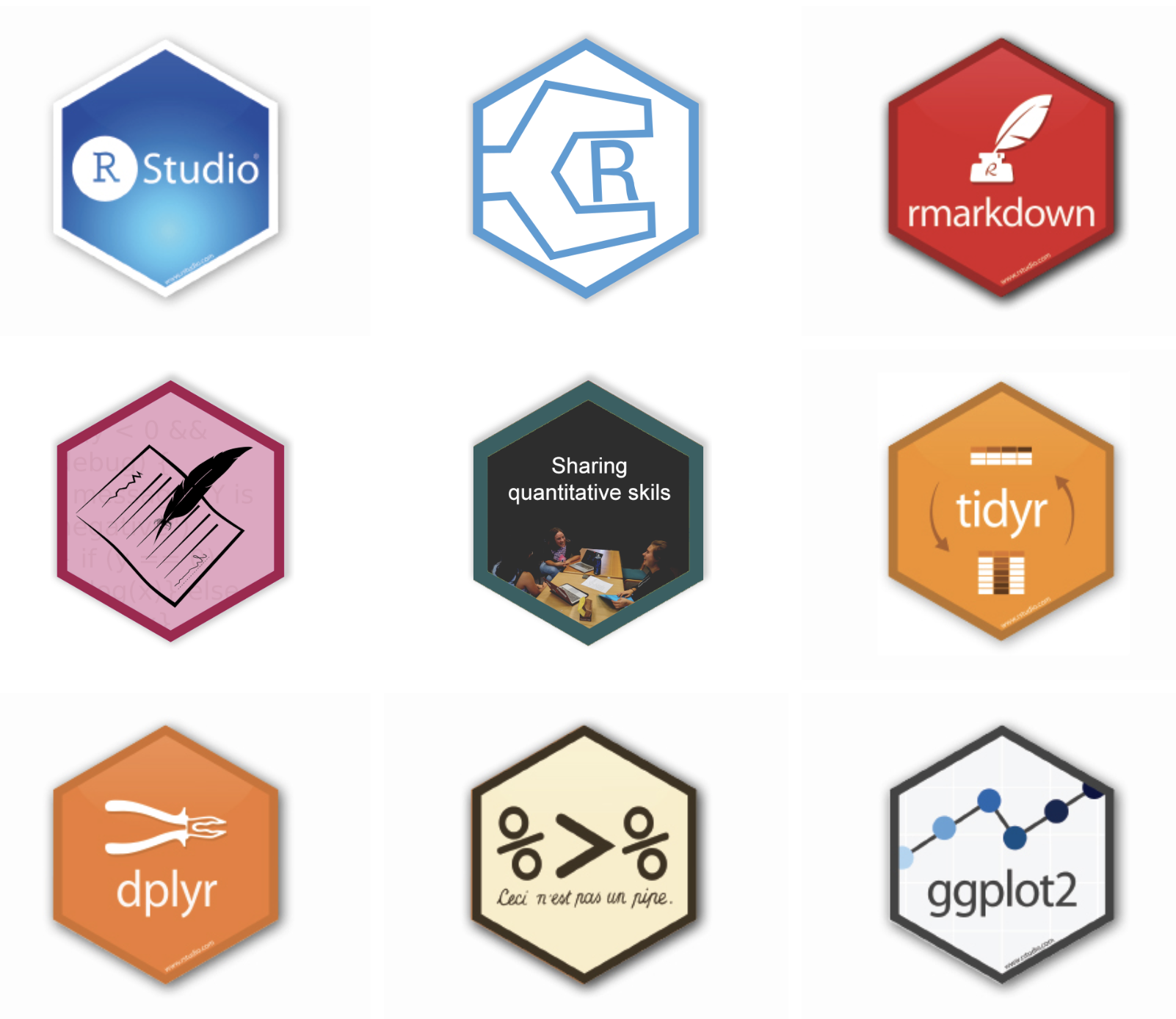Course aims
The Data Science in Ecology and Environmental Science course aims to promote the development of quantitative skills among 3rd and 4th year students (and MSc students when appropriate) at the University of Edinburgh using interactive workshops and an online learning platform.
Key skillsets in ecological and environmental sciences include quantitative skills such as data manipulation, data visualization, coding, statistics, simulation, and more - together this skillset can be called data science. Data Science in Ecology and Environmental Sciences will teach quantitative skills including data management, data visualization, programming, simulation and statistical analysis. The course will teach about the field of data science and how it applies to the disciplines of ecology and environmental science. Students will learn about best practices in data science and will contribute to peer learning. Skills will be taught using an online problem-based learning approach and in class tutorials and discussions.
Learning outcomes
- Understand key quantitative skills in the disciplines of ecology and environmental sciences including data management, data visualization, programming, simulation and statistical analysis.
- Use data science tools to address research questions and challenges in ecology and environmental sciences.
- Implement version control to back up work, code collaboratively and write reproducible workflow reports.
- Practice teaching quantitative skills and develop an online tutorial.
- Learn about the field of data science and future careers in this area
Key skills taught:
- Version control and collaborative coding
- The basics of functional and object-oriented programming
- Development of workflows for quantitative analysis
- Data manipulation and organisation
- Data visualisation and graphics
- Big Data in Ecology and Environmental Sciences
- Statistics and the linear model
- An intro to hierarchical linear models
- An intro to Bayesian statistics (using the linear model)
- Computing intensive research
- Careers in Data Science
Programming languages introduced
• R • Git • Markdown • Html • Stan • JavaScript • Python
Data Science in ESS will allow students to gain a set of 10 key quantitative skills and also tailor their quantitative training to the skillsets and level they want to obtain in a way that traditional courses cannot. Each student will maintain their own version-controlled repository of data and code and will also provide peer feedback on work provided by other students as the course progresses.
The course will introduce a variety of programming languages to the students and we will teach the fundamentals of programming generically. Much of the course content will focus on the programming language R, which is dominant in the field of Ecology and Environmental Sciences, however we will expose the students to other programming languages and will encourage them to seek out relevant programming languages and different skillsets as appropriate. The students will not be directly assessed on their command of programming languages (allowing more beginner and advanced students to participate on the same course), but rather how they engage with the quantitative skills being taught in the collaborative coding environment and how they design the teaching of any quantitative skills through the tutorial that they will develop.
The key assignment from the course is the development of an online tutorial, which advances students’ skills in not only acquiring knowledge, but also sharing it in an accessible way. For an example tutorial from the 2018 cohort of the course, check out Maude Grenier’s Intro to spatial analysis in R tutorial, featured on the Coding Club website!
Course schedule

Online framework and flipped classroom

The course will be run online using the Coding Club website and the code hosting platform for version control and collaboration GitHub. GitHub Education provides free access to private repositories for students and staff for teaching and research purposes. There will be no formal lectures in the course. Instead 1.5-hour tutorials and 2- hour online workshops with the teaching team will be held involving student-driven discussion and hands on learning. Students will need to complete Coding Club tutorials each week and study readings and additional resources so that they can bring questions to the tutorials and participate in discussions.

Teaching team
Isla Myers-Smith (Course organiser)
Gergana Daskalova (PhD tutor)
Elise Gallois (PhD tutor)
Maude Grenier (PhD tutor)</p>
Joseph Everest (PhD tutor)</p>
Shawn Schneidereit (Tutor)</p>
With support from the larger Coding Club team for the development of online tutorials.